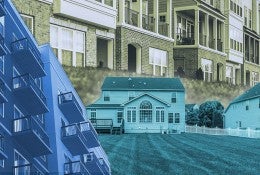Big cities, megaregions and the huge role they will play in response and recovery
Cities need to reject the notion that they are the pandemic problem; rather, they need to assert their collective brainpower, humanity and economies as the solution to emerging from this current crisis smarter, kinder and more prosperous than ever.





